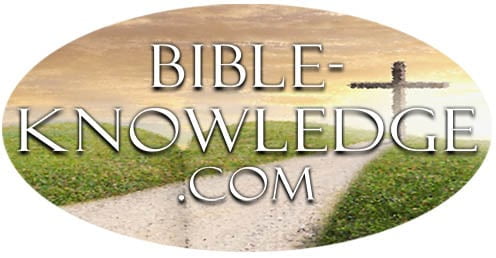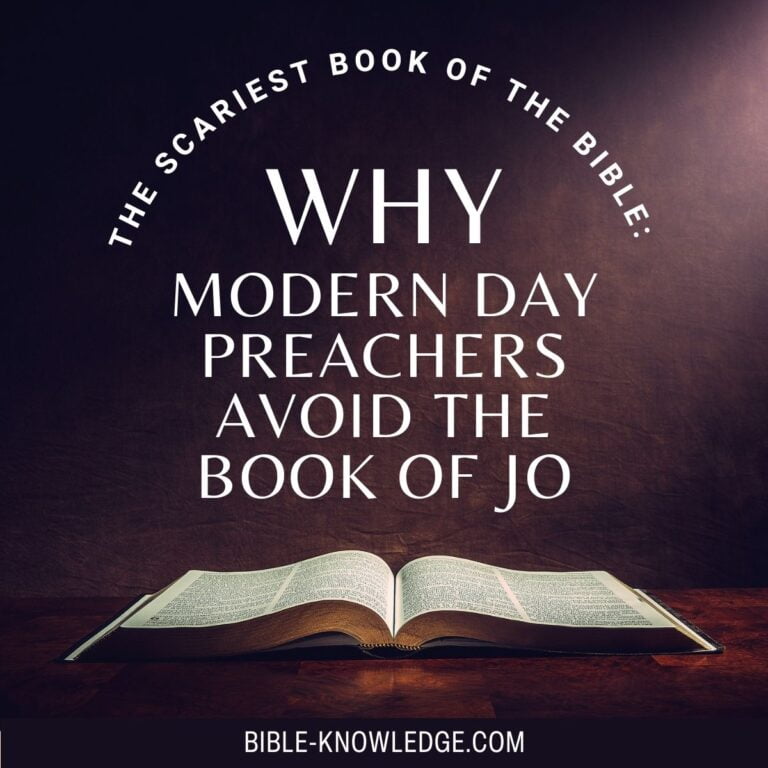When we think of the Christmas story, there are several characters that spring to mind. Mary, obviously and for good reason, is probably top on our list. We often think of the shepherds and the Wise Men, even Herod often finds his way into most good Christmas stories. Joseph is there too, of course, but always as just an escort for Mary.
I’m thinking of the many Christmas plays I have seen or participated in. Joseph is always a very minor role. He leads the donkey to Bethlehem and then simply stands on the sidelines. One reason for this may be the fact that God did not choose to record any words spoken by Joseph in the Bible. Often, when characters do not have recorded speech, we instinctively place them on a back burner somewhere. They must not be that important.
This is not the case with Joseph. Regardless of his silence, Joseph might be one of the best New Testament examples of a Christian. There is a vast amount of wisdom that we can learn from this silent man. As they say, actions speak louder than words, right? That is certainly the case with Joseph.

A Quietly Important Man
We can tell quite a bit about Joseph just by looking at his station in life. In Matthew 13:55, we are told his occupation. When Jesus, as an adult, was teaching in the synagogue, his countrymen said of him, “Is not this the carpenter’s son? is not his mother called Mary? and his brethren, James, and Joses, and Simon, and Judas?”
Joseph was a carpenter by trade. Some interpret it more broadly as a “builder” which would have included both wood craftsmanship as well as stone masonry. This was not the worst station in life to hold during the Roman occupation of Israel, but it certainly did not mean Joseph was wealthy or of high social standing. When viewed in light of the fact that Joseph, according to the genealogy in Matthew 1, was a direct descendant of King David, you might wonder why he did not have a more prominent place in society. If Joseph was a direct descendant of David wouldn’t that have made him a prince to some degree?
History tells us that Israel was plagued with one invader after another for hundreds of years preceding Jesus’ birth. The Romans would have begun their occupation of Israel just a few decades before Joseph was born, in about 63 BC. Regardless of who the ruling empire was of the time, though, the Jewish culture itself, put much stock in genealogies. Those with a strong, recorded genealogy were often given more prominent roles in society and had greater advantages. We can see this from the way the Apostle Paul described himself as a Pharisee in Philippians 3:5, “Circumcised the eighth day, of the stock of Israel, of the tribe of Benjamin, an Hebrew of the Hebrews; as touching the law, a Pharisee.”
So, although, politically, it would have meant nothing in Roman-occupied Israel that Joseph was a descendant of David, socially, it would have meant a great deal. And yet, we never see Joseph referred to as a Son of David or a prince, or even of having any high standing in society. He is not involved in law. He is not a Pharisee. He is not active in the synagogue except as a layperson. Knowing what we know of Jewish culture, it is easy to infer that Joseph could have used his exquisite genealogy, recorded in Matthew 1, to help himself along in Jewish society. He did not do this, though. Instead, we see that he was a craftsman. He chose a humble path. He was a prince of Israel who chose to become a carpenter.
A Just Man
Matthew chapter 1 tells us quite a bit about this quiet hero of Christmas. In Matthew 1: 19, Joseph is described as a “just man.” In the Greek this word just means upright, innocent, and holy. Joseph was not only innocent concerning Mary’s situation, they both knew the child had not be conceived naturally, but he was also holy. This meant that he knew he was not the father, and yet he was not filled with wrath or revenge the way you would imagine a man would be after hearing that his fiance was pregnant. To really understand how just he really was, it is important to understand Jewish laws concerning Mary’s situation.
Many cultures are acquainted with a relationship pattern that begins with friendship, then dating, then engagement to be married, then marriage. This is not the pattern followed by all cultures, however, and it was not the case in ancient Jewish culture. In Joseph’s day, a couple which had chosen each other, or a couple which were chosen for each other would enter a betrothal period. In Jewish culture, the betrothal began with a legal ceremony. The two were legally bound to one another and were considered legally married. They were not, however, allowed to live together or have relations with one another. During this period, which could vary in length, both the man and woman were required to be faithful to their betrothed. A betrothal could only end in divorce or consummated marriage. There was no “breaking up.”
So, in light of these legal marriage practices in ancient Israel, we see that Mary and Joseph’s situation was far more serious than a guy finding out his girlfriend cheated on him and got pregnant. Their situation was equivalent to a husband finding out his wife had gotten pregnant by someone else. Society would have viewed Mary as an adulteress. Joseph did not have the option to simply “break up” with her.
A Merciful Man
Joseph had three options. He could take the most natural route: make her a public example. During this time period in Israel if a woman was caught in adultery, her husband could make a public example of her and have her stoned. Adultery was a capital punishment crime. In John 8, we see just how easily a woman could be stoned to death in ancient Israel, when the woman caught in adultery was brought to Jesus. If Jesus had not intervened for her, she would have been stoned to death that day. If Joseph had not been a just man, this would have been Mary’s fate as well. Once the adulteress was stoned, the former husband would take on the position of a widower. He still kept his social standing in society. In fact, he would have been looked on as a righteous person for executing his sinful wife.
Joseph’s second option was to “put her away privily.” This means that Joseph would have to go through with a legal divorce. In ancient Israel, a divorce, although allowed by law, was a huge scar on someone’s life emotionally and socially. Many fathers would not give their daughters to a man who had been divorced, and many men would not marry a woman who had been divorced. So, both Mary and Joseph would have endured life-long repercussions if they got divorced.
Joseph knew this, and yet he was willing to endure these consequences in his own innocent life so that Mary would not die. Taking the second option would have been very unusual for a young man during this time in Israel. The very fact that he was willing to take this route shows us that Joseph was a merciful man.
A Selfless Man
Joseph also had a third option as well. He could take Mary to be his wife. In Matthew 1:20 Joseph has a very important experience. The angel of the Lord appears to him.
20 But while he thought on these things, behold, the angel of the Lord appeared unto him in a dream, saying, Joseph, thou son of David, fear not to take unto thee Mary thy wife: for that which is conceived in her is of the Holy Ghost. 21 And she shall bring forth a son, and thou shalt call his name Jesus: for he shall save his people from their sins. 22 Now all this was done, that it might be fulfilled which was spoken of the Lord by the prophet, saying, 23 Behold, a virgin shall be with child and shall bring forth a son, and they shall call his name Emmanuel, which being interpreted is, God with us. 24 Then Joseph, being raised from sleep, did as the angel of the Lord had bidden him, and took unto him his wife:
Matthew 1:20-24
The angel of the Lord reveals to Joseph that God’s plan for him is not to stone Mary, and it is not even to show her mercy by putting her away privately. God’s plan for Joseph would be even more revolutionary than these two options. God wanted Joseph to take Mary to be his wife.
Remember, Joseph and Mary live in a culture where adultery is an unforgivable crime. Men did not forgive and forget. Mary’s story was outrageous, but here is God telling Joseph to believe her and complete their legal marriage.
It is also important to remember that Mary and Joseph live in a small, conservative town. Even by today’s standards, this story would be fuel for gossip. The account in the book of Luke reveals to us that Mary went away for 3 months when she first found out she was pregnant.
8 And Mary said, Behold the handmaid of the Lord; be it unto me according to thy word. And the angel departed from her. 39 And Mary arose in those days, and went into the hill country with haste, into a city of Juda; 56 And Mary abode with her about three months, and returned to her own house.
Now, consider this timeline. Mary comes home from her cousin Elisabeth’s house, and she is already 3-4 months pregnant. Let’s say Joseph marries her immediately (although we don’t know that he did). A rushed wedding was not a thing in ancient Israel. Weddings were long-planned, elaborate celebrations. A rushed, sudden wedding would have been alarming. Also, consider the two of them don’t leave their hometown for Bethlehem until Mary is nine months pregnant. This is plenty of time for the folks to put two and two together and figure out that Mary was pregnant before their marriage was finalized. Any small town in any culture is going to speculate and gossip.
So, in light of this, we can truly see the selfless sacrifice that Joseph chose to make. Joseph chose to believe Mary. He chose to believe the angel, but most significantly, he chose to sacrifice his own reputation for this woman, this child and the plan of God. Joseph wasn’t ignorant. He knew what people would say about both he and Mary. Yet, he obeyed God anyway. There is no record of his arguing. He simply obeyed selflessly.
There is even some proof that the folks in their hometown of Judea had speculated about Mary and Joseph. In John 8:41 Jesus is having a debate with the Pharisees as a grown man. When Jesus makes a good point to them concerning their behavior, their retort is this, “We be not born of fornication. We have one father.” Many believe that the Pharisees here are mocking Jesus, insinuating that He was born of fornication. This would make sense in light of the timeline of Mary’s pregnancy and her rushed wedding. If this is the case, then not only did the people of Judea label Mary and Joseph as sinners who tried to hide their sin with a quick wedding, but this assumption seems to have endured if the Pharisees are bringing it up to an adult Jesus some 30 years later. It is not out of the scope of logic to believe this could happen. We all know scandals in our own hometowns that have endured for decades.
The point is that Joseph knew this was going to happen. He knew there would be scandal, speculation, gossip and accusations. He also knew that there would not be anything he could do about it. People would look to him as the obvious culprit. How else could Mary be nine months pregnant only 5-6 months after her legal wedding? Even knowing all the consequences that would come, we see Joseph’s selfless obedience in Matthew 1: 24.
Then Joseph being raised from sleep did as the angel of the Lord had bidden him, and took unto him his wife:
A Believing Man
Beyond Joseph’s selflessness, there were other factors at work that led to his quick obedience following his vision. The angel of the Lord clued Joseph in on the most important plan in the history of mankind.
Matthew 1:20-23 The angel of the Lord appeared unto him in a dream, saying, Joseph, thou son of David, fear not to take unto thee Mary thy wife: for that which is conceived in her is of the Holy Ghost. 21 And she shall bring forth a son, and thou shalt call his name Jesus: for he shall save his people from their sins.22 Now all this was done, that it might be fulfilled which was spoken of the Lord by the prophet, saying, 23 Behold, a virgin shall be with child, and shall bring forth a son, and they shall call his name Emmanuel, which being interpreted is, God with us.
Joseph, who we know to be a faithful Hebrew, had just been given the blueprint for an entirely new religion. Although the Hebrews had been waiting for a Messiah, the thing that turned many Hebrews away from following Jesus was the simple fact that this was a new religion.
The Hebrew religion was very cultivated by this time. Even today, the Jewish culture cannot hardly be separated from the Jewish religion. The religion is the people. It was no different in Joseph’s day, except for the fact that it was more intertwined in Jewish life and society than it is today. So, although Joseph had been taught that a Messiah would come, and even though he had been taught the prophecies, this was, in essence, a new religion.
Despite this, Joseph awakes from his dream full of faith. He is full of enough faith in this new religion to put his entire life and reputation on the line. Joseph didn’t need a month’s worth of sermons to convince him. He didn’t need a class on faithfulness. He didn’t even need to read the newest Christian bestseller to pump up his spirit. He received one message from God, he believed, and he obeyed. We see that during this very important moment of Joseph’s life not one word of speech is recorded on Joseph’s behalf, but once again, his actions speak so much louder than words ever could.
Matthew 1:24 Then Joseph being raised from sleep did as the angel of the Lord had bidden him.
A Spiritual Man
If the beginning of Matthew 1:24 shows us how Joseph was a believing man, then the ending of the verse shows us that he was a spiritual man.
Matthew 1:25 And knew her not till she had brought forth her firstborn son: and he called his name Jesus.
If Mary and Joseph fall into common demographics of their day, they would have been engaged very young. Since their wedding had to be rushed, they did not spend a very long time engaged. It is very likely that Mary and Joseph were married and expecting baby Jesus in their late teens or early twenties.
A common understanding of human biology reminds us that a young man is in his sexual prime at this time. Despite the fact that Joseph had already waited for Mary, now he would wait some more before he could consummate his marriage. He would wait the 3-4 months during the rest of the pregnancy, and then he would wait while Mary entered her state of impurity following the birth. This was an important aspect of Jewish culture during menstruation and following childbirth. The time of Mary’s purification would vary depending on how difficult the birth had been.
Despite the fact that he and Mary could now live together, perhaps even sleeping in the same bed, which was often necessary for warmth at night, he refrained from “knowing” her. He was spiritual enough to call into submission his natural desires for a greater cause.
A Brave Man
Once Joseph and Mary arrive in Bethlehem and Jesus is born, it becomes apparent that this difficult journey is about to take a turn for the worse. Joseph has already sacrificed his reputation, set his life on an entirely different path than he had originally planned and denied his natural desires toward his new wife for almost half a year. Now, he walks right into the middle of a political assassination plot. Who is the target in this plot? None other than baby Jesus.
Once again, Joseph’s actions will speak for him. Joseph, Mary and baby Jesus are in a bad position. In fact, they are perhaps weeks away from witnessing a horrific genocide in Bethlehem.
Matthew 2:16 Then Herod, when he saw that he was mocked of the wise men, was exceeding wroth, and sent forth, and slew all the children that were in Bethlehem, and in all the coasts thereof, from two years old and under, according to the time which he had diligently inquired of the wise men.
The little family will only escape this genocide because of Joseph’s bravery and obedience.
Matthew 2:13-15 And when they were departed, behold, the angel of the Lord appeareth to Joseph in a dream, saying, Arise, and take the young child and his mother, and flee into Egypt, and be thou there until I bring thee word: for Herod will seek the young child to destroy him. 14 When he arose, he took the young child and his mother by night, and departed into Egypt: 15 And was there until the death of Herod.
Once again, Joseph receives instructions from the Lord and obeys. He does not question. He does not explain to the Lord how he needs to get back to work, although he did need to provide for his new family. He didn’t explain how he should get back to his extended family, although perhaps he was missing them. Joseph just bravely obeys.
It is important to note that Egypt would not have been the most appealing place for a devoted Hebrew to travel. Egypt was, historically, a pretty wild place, filled with false gods and idolatry. A God-fearing Hebrew such as Joseph would have found nothing appealing about Egypt. But this is where he goes because God told him to. No doubt this was a scary time in Joseph and Mary’s life. Add to this the fact that they are trying to get adjusted to caring for a baby now.
We have all experienced moments in life where you are so confused and out of your comfort zone that it is hard to even put one foot in front of the other. Do you think Joseph experienced any days like this while hiding out in Egypt? Do you think Joseph ever wondered, like we often do, “How in the world did my life turn out like this? None of this was on my plan.”
If anyone could ever relate to those types of feelings, it would be Joseph. His reputation has been sacrificed, his career is entirely put on hold, his own desires are pushed to the back burner for now, he is far from home, with no friends around, and his entire life is devoted to protecting his family from Herod, the most powerful man around, who wants to murder his baby.
If Joseph was human, and he was, then he felt confused, scared, disappointed, and maybe even lonely. What kept Joseph going? What helped Joseph during those days in Egypt? Historians believe that the time frame between the taxation in Bethlehem and the death of Herod would have been approximately three and a half years. So, it is likely that Mary, Joseph and Jesus were on the run and in hiding most of this time. How did Joseph emotionally survive those three and a half years?
The answer is that God gave Joseph a dose of supernatural bravery. God does this for any of His children when they are living a life of obedience. He will allow you to undertake tasks that you could have never seen yourself accomplishing. You can overcome obstacles that are by all accounts impossible.
Conclusion
Joseph lived a just, merciful, selfless, believing, spiritual life. He never speaks a word in our Bible, and yet he can teach us so much about how to be a good Christian and a good person. Live justly, show mercy, be selfless, never stop believing in the messages of God, stay spiritual and watch how God will provide you with supernatural bravery in the face of daunting circumstances.





Wow I never really paid attention to Joseph til I came across this article! Such a fresh information to know. We focus too much on Mary’s role in Jesus earthly ministry that we forgot His earthly father, Joseph’s obedience and sacrifice. Thank you for bringing this up! God bless you